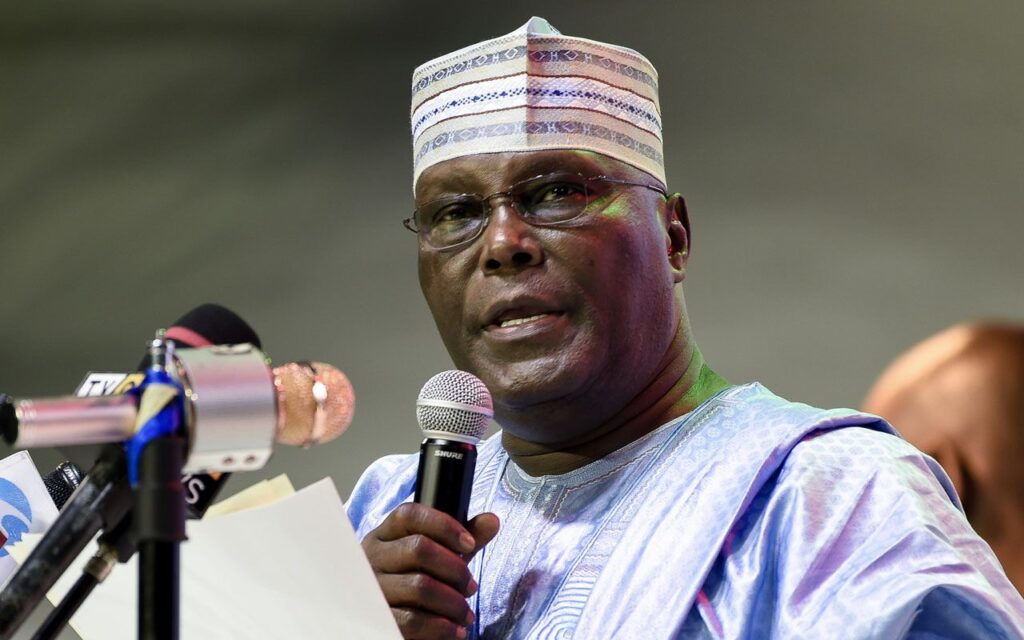Atiku Abubakar, the former Vice President has expressed his disapproval of the 2025 National Budget presented to the National Assembly by President Bola Tinubu on Wednesday, December 18, describing it as insufficient to address Nigeria’s significant structural challenges.
With a total of ₦48 trillion and a projected revenue of ₦35 trillion, the budget reflects a deficit exceeding ₦13 trillion, representing 4% of the nation’s GDP.
Speaking on the budget analysis, Atiku criticized President Tinubu’s administration’s reliance on external borrowing to cover this gap, with plans for ₦13 trillion in new borrowings, including ₦9 trillion in direct loans and ₦4 trillion in project-specific financing.
The former Nigerian leader noted that the heavy borrowing trend, consistent since 2016 under the APC-led government, has escalated public debt while exposing the economy to increased risks such as high interest payments and foreign exchange liabilities.
He highlighted the budget’s shortcomings in fostering sustainable economic growth and tackling Nigeria’s persistent challenges.
One major concern raised was the weak execution of the previous year’s budget, with only 35% of capital expenditures disbursed by the third quarter of 2024, despite claims of 85% execution.
READ ALSO:
Atiku also expressed doubts about the government’s ability to improve implementation in 2025, especially regarding vital capital investments needed for economic transformation.
Debt servicing, which accounts for ₦15.8 trillion (33% of total expenditure), nearly matches capital expenditure allocations of ₦16 trillion (34%).
This disproportionate allocation, Atiku argued, undermines investment in critical sectors such as defence (₦4.91 trillion), infrastructure (₦4.06 trillion), education (₦3.52 trillion), and health (₦2.4 trillion), perpetuating a cycle of borrowing and fiscal instability.
The high recurrent expenditure of ₦14 trillion (30% of the total budget) was also criticized, with Atiku calling out the government for failing to address inefficiencies in governance, reduce contract inflation, and curb waste in public spending.
He also noted that this bloated expenditure leaves limited resources for essential development needs.
Atiku further pointed out the inadequacy of capital investment, which accounts for only 25–34% of the total budget.
On a per capita basis, this translates to just ₦80,000 (US$45), insufficient to meet the demands of an economy struggling with slow growth and infrastructure deficits.
The planned increase in the VAT rate from 7.5% to 10% was also condemned as regressive.
Atiku argued that this measure would exacerbate the cost-of-living crisis and stifle economic growth, imposing additional burdens on an already struggling populace without addressing inefficiencies in public revenue collection.
Atiku called for urgent structural reforms to improve fiscal discipline and enhance efficiency in governance.
He stressed the need to prioritize development-oriented policies, reduce waste, and shift away from unsustainable borrowing practices to ensure long-term economic stability and growth.















